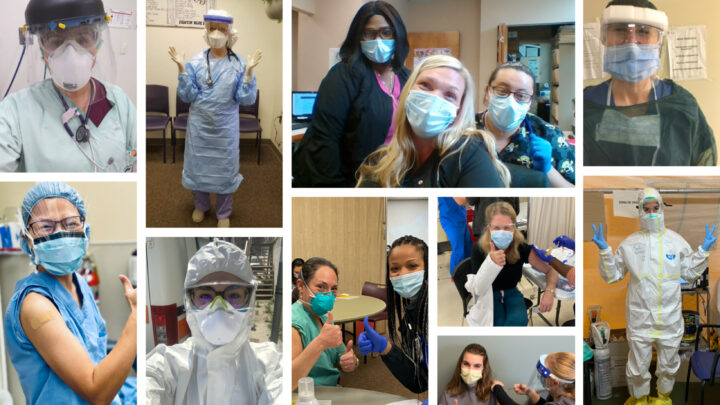
As the first point of contact for patients, primary care physicians (PCPs) manage a vast spectrum of health concerns, from acute illnesses to chronic conditions. The broad category includes specialties like family medicine, internal medicine and pediatrics.
In the United States, the PCP landscape is primarily composed of family physicians who have completed formal residency training and are often board-certified by the American Board of Family Medicine (ABFM). The once-common general practitioner (GP), who may not have specialty residency training, is now less prevalent in the U.S. system. However, in countries like the U.K. and Australia, GPs remain the standard of primary care. Regardless of the title, PCPs serve as the healthcare system’s backbone.
Despite their critical importance, many PCPs are exploring alternative career paths. Here’s why they’re seeking new opportunities, plus some of the most promising alternative career options available.
Why do PCPs seek alternative careers?
Primary care physicians are the first line of defense in healthcare. The very nature of this role has created an environment ripe with challenges, leading many PCPs to reconsider their career trajectories. In a Sermo poll 20% of physician participants (representing all specialties) said they’re actively considering a career change.
Another Sermo poll reveals some of the core drivers. When asked about career changes, 19% of respondents cited stress and burnout, while 12% pointed to a lack of work-life balance. Below is a summary of the main reasons PCPs may be looking for a change:
High administrative load
PCPs often manage a mountain of administrative work. They can spend hours on unreimbursed tasks like navigating complex electronic medical records (EMR), completing prior authorizations and handling paperwork. This can detract from patient care and contribute to a sense of moral injury and burnout, as physicians feel they are battling a system that obstructs their ability to provide care.
Physicians on Sermo have reflected on the effects of burnout. “After having my first Burnout in 2018, I decided to leave the clinic in order to heal and to go back to Uni,” a family medicine physician shares. I took a MBA and now am planning to pursue a career in Consultancy.”
Conversely, an OBGYN and Sermo member decided to stay the course despite burnout. “There are times when Burnout does its thing, however I don’t see myself in anything other than my career,” they write.
Compensation vs. workload
PCP compensation often falls short of their subspecialist colleagues’. In fact, family medicine has the lowest average salary range among 22 specialties, as Sermo previously reported.
In a Sermo poll, 64% of physician participants said they do not feel their compensation is fair. Another poll revealed that only 12% of physicians were “very satisfied” with their current compensation, while 38% were “somewhat satisfied.” The remaining 50% were unsatisfied to varying degrees. PCPs who feel underpaid may seek roles that offer better financial gain.
Desire for greater systemic impact
PCPs who enter medicine to make a difference can feel constrained by the limitations of clinical practice. Frustrated by their inability to effect broader change, some seek administrative, policy or public health roles. These positions offer the opportunity to shape policies and systems that impact entire populations rather than individual patients.
Alternative careers for primary care physicians
The generalist training of PCPs provides a versatile skill set that is valuable across many sectors of the healthcare industry.
Direct primary care
Direct Primary Care (DPC) is a growing model that allows physicians to contract directly with patients for a monthly, quarterly or annual fee. It bypasses insurance companies, freeing physicians from the administrative burdens of billing and coding. In a DPC practice, physicians typically have smaller patient panels, allowing for longer appointments and more personalized care. This offers greater autonomy and can reduce burnout, making it an attractive option for PCPs who need a change but want to continue practicing within their specialty.
Internal medicine alternative careers
Internists possess a deep knowledge of adult diseases, making them well-suited for the following:
Aviation medical examiner
Aviation Medical Examiners (AMEs) are physicians designated by the Federal Aviation Administration (FAA) to perform medical exams for pilots and air traffic controllers. This role requires specialized training but offers a structured work environment with regular hours. It’s ideal for internists who enjoy procedural work and applying clinical skills in a regulatory context.
The average salary for AMEs in the U.S. is $80,418, according to salary.com.
Clinical research scientist
Physicians with a passion for science and discovery can transition into clinical research. In this role, they help design, conduct and analyze clinical trials for new drugs and therapies, contributing to medical advancement on a global scale. The median salary for a clinical research scientist in the U.S. is $178,000, according to Glassdoor data.
Health Coach
A health coach works with individuals to help them achieve their wellness goals through lifestyle and behavior adjustments. The path offers flexibility and the satisfaction of empowering patients, and has a median salary of $62,000 in the U.S., per Glassdoor data.
Disability reviewer
Physicians in this role review disability claims for insurance companies. They assess medical records to determine the validity of a claim, ensuring that it’s based on sound medical evidence. It’s a non-clinical job that leverages medical expertise in a corporate setting. The median salary for the role in the U.S. is $76,000, according to Glassdoor.
Health insurance/utilization review
In this role, physicians work for insurance companies to review medical services and determine if they are necessary and appropriate. Their work helps control healthcare costs while ensuring quality of care. It offers stable hours and is often a remote work opportunity. It comes with an median salary of $75,000 in the U.S., according to Glassdoor.
Pediatrician alternative careers
Pediatricians can leverage their expertise in child health in numerous non-clinical and alternative settings.
Pediatric telehealth consultant
Telehealth has expanded rapidly in the past five years, and pediatricians can ride the wave, providing virtual consultations from home. This role offers flexibility and allows physicians to reach patients in underserved areas. The role’s salary varies widely based on hours, but it averages around $115 per hour in the U.S., according to ZipRecruiter.
Pediatric research physician
Similar to clinical research for internists, pediatric research physicians focus on developing new treatments and therapies for childhood diseases. In the U.S., the median salary for clinical research physicians in general is $361,000, according to Glassdoor.
Pediatric public health physician
Working for government agencies or non-profits, public health physicians focus on community-level health initiatives. They may work on projects like vaccination campaigns, school health programs or policy development. In the U.S., the median salary of public health physicians in general is $258,000, per Glassdoor data.
Medical director for children’s clinics
In this leadership role, a pediatrician oversees the clinical operations of a children’s hospital or clinic. They ensure quality of care, manage other providers and contribute to strategic planning. It’s a great step for those interested in healthcare administration. The average salary for the role in the U.S. is $232,369, according to ZipRecruiter.
Family Medicine Alternative Careers
Family physicians’ broad training opens up a range of freelance physician jobs and other opportunities, including:
Resort doctor
Resort doctors provide medical care to guests at hotels and resorts in tourist destinations. The role combines clinical medicine with a unique lifestyle, often in beautiful locations. It’s a solid fit for those who enjoy travel and a diverse patient population. The accompanying salary is highly variable by location, and often includes housing and other perks.
Correctional services doctor
Correctional medicine involves providing primary care to incarcerated individuals. While challenging, the role offers a structured environment and the opportunity to serve a marginalized population with complex health needs. The role has an average salary of about $165,000 in the U.S., according to ZipRecruiter.
Medical director
Family physicians can serve as medical directors for various organizations, including long-term care facilities, hospice agencies or corporate wellness programs. This leadership position involves overseeing clinical quality and strategy. Glassdoor data places the median medical director salary in the U.S. at $323,000.
Urgent care and emergency medicine
Many family physicians transition to urgent care or emergency medicine. Both offer shift-based work, which can provide more predictable scheduling and a different clinical focus than traditional primary care. In the U.S., urgent care physicians make an average salary of $237,079, and ER physicians average $288,373, according to ZipRecruiter.

Locum tenens work as an alternative career
Locum tenens, or temporary physician work, is an excellent alternative career path for PCPs seeking more flexibility. Instead of being tied to a single practice, locum tenens physicians take on short-term assignments in various locations, filling in for other doctors who are on leave or helping facilities manage staffing shortages. This model allows physicians to explore different practice settings without a long-term commitment.
The financial incentive is a major draw. Locum tenens positions “can provide excellent pay—often higher than permanent roles,” in the words of one GP on Sermo. An OBGYN on Sermo cautions that it’s crucial to partner with reputable locum tenens companies to avoid losing out on the financial benefits. “I quickly learned that not all locum tenens companies are created equal,” they explain. “Some offered impressive rates upfront but had hidden deductions.”
Many Sermo members share a positive view of locums tenens work. “It is a valid option to consider extra income and be able to combine it with your regular schedule and life,” a family medicine physician writes. For some, it’s a way to fund a career change. “I used my vacation time from my hospital job to do locum tenans so that I could pay for law school in cash,” recounts a radiologist.
Sermo paid surveys as a means of funding your future
For physicians contemplating a career change or seeking to supplement their income, Sermo offers a flexible earning opportunity. Participating in paid medical surveys allows you to monetize your expertise on your own time. This extra income can be used to fund a career transition, support additional education or simply provide a financial cushion.
Beyond the financial benefits, Sermo surveys keep you connected to the latest developments in medicine. You can stay up to date on diagnostic approaches and treatment protocols while providing insights that shape the future of medical products and patient care. This can offer a sense of professional fulfilment, even if you are moving away from direct clinical practice.
At the same time, you’ll join a community of fellow PCPs navigating similar decisions—whether transitioning to non-clinical roles, scaling back practice hours, or exploring consulting, research, or industry opportunities. Through that network, you gain access to real-world guidance, shared experiences, and support during your next career step.
Your next career chapter
The comprehensive training of primary care physicians can translate to a wide range of alternative careers. Many PCPs are shifting from high-volume clinical work to high-impact roles that provide greater professional and financial fulfillment. Whether it’s through locum tenens, a non-clinical job or a complete career pivot, PCPs are finding ways to build a rewarding career beyond the traditional clinic.
If you’re considering a career change, you don’t have to navigate the transition on your own. Connect with Sermo’s community of more than one million physician members to share resources, connect with peers in your field, and find support for your journey.















